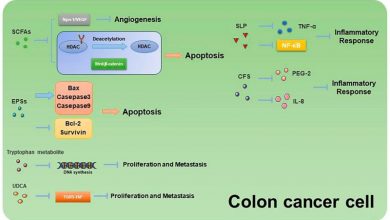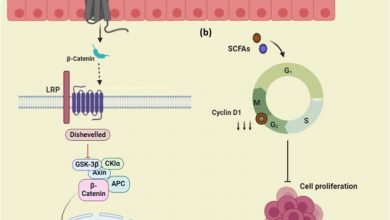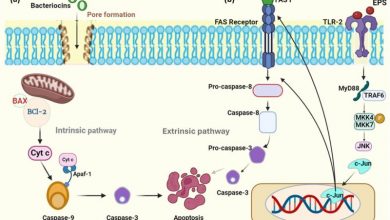
Exosomes: A Revolutionary Step Beyond Stem Cell Therapy
- Knowledge is power
- The Future Of Possible
- Hibs and Ross County fans on final
- Tip of the day: That man again
- Hibs and Ross County fans on final
- Spieth in danger of missing cut
Exosomes derived from stem cells have opened a new horizon in therapeutic innovation. Not only do they replicate the healing properties of their parent stem cells, but they also address many of the limitations of traditional stem cell therapies.
Here’s why exosomes are gaining attention in conditions like ulcerative colitis (UC) and colorectal cancer (CRC):
1️⃣ Overcoming Limitations of Stem Cell Therapy:
No risks of undesired cell differentiation or ectopic tissue formation.
Reduced concerns about tumor formation or genetic mutations.
Eliminates ethical and safety challenges.
2️⃣ Unique Targeting Capabilities:
Exosomes autonomously home in on specific lesion tissues through surface ligand/receptor recognition, offering precision in therapy.
3️⃣ Anti-inflammatory and Immunomodulatory Effects:
Preclinical studies reveal that MSC-derived exosomes effectively reduce inflammation and modulate immune responses in diseases like UC and CRC.
✨ The potential of exosomes in overcoming the challenges of stem cell therapy while delivering targeted, safe, and effective treatments marks a new era in regenerative medicine and cancer care.
What are your thoughts on the future of exosome-based therapies?
Exosomes derived from stem cells have opened a new horizon in therapeutic innovation. Not only do they replicate the healing properties of their parent stem cells, but they also address many of the limitations of traditional stem cell therapies.
Here’s why exosomes are gaining attention in conditions like ulcerative colitis (UC) and colorectal cancer (CRC):
1️⃣ Overcoming Limitations of Stem Cell Therapy:
No risks of undesired cell differentiation or ectopic tissue formation.
Reduced concerns about tumor formation or genetic mutations.
Eliminates ethical and safety challenges.
2️⃣ Unique Targeting Capabilities:
Exosomes autonomously home in on specific lesion tissues through surface ligand/receptor recognition, offering precision in therapy.
3️⃣ Anti-inflammatory and Immunomodulatory Effects:
Preclinical studies reveal that MSC-derived exosomes effectively reduce inflammation and modulate immune responses in diseases like UC and CRC.
✨ The potential of exosomes in overcoming the challenges of stem cell therapy while delivering targeted, safe, and effective treatments marks a new era in regenerative medicine and cancer care.
What are your thoughts on the future of exosome-based therapies?





Hi, this is a comment.
To get started with moderating, editing, and deleting comments, please visit the Comments screen in the dashboard.